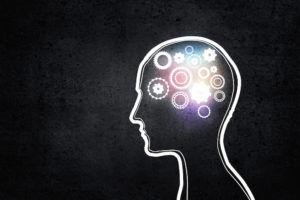A mental health disorder characterized by persistently depressed mood or loss of interest in activities, causing significant impairment in daily life. Depression (major depressive disorder) is a common and serious medical illness that negatively affects how you feel, the way you think and how you act. Fortunately, it is also treatable. Depression causes feelings of sadness and/or a loss of interest in activities once enjoyed. It can lead to a variety of emotional and physical problems and can decrease a person’s ability to function at work and at home.

Homeopathy Treatment for Depression
Depression symptoms can vary from mild to severe and can include:
-
Feeling sad or having a depressed mood
-
Loss of interest or pleasure in activities once enjoyed
-
Changes in appetite — weight loss or gain unrelated to dieting
-
Trouble sleeping or sleeping too much
-
Loss of energy or increased fatigue
-
Increase in purposeless physical activity (e.g., hand-wringing or pacing) or slowed movements and speech (actions observable by others)
-
Feeling worthless or guilty
-
Difficulty thinking, concentrating or making decisions
-
Thoughts of death or suicide
Symptoms must last at least two weeks for a diagnosis of depression.Also; medical conditions (e.g., thyroid problems, a brain tumour or vitamin deficiency) can mimic symptoms of depression so it is important to rule out general medical causes.
Some forms of depression are slightly different, or they may develop under unique circumstances, such as:
Persistent depressive disorder (also called dysthymia) is a depressed mood that lasts for at least two years.
Postpartum depression is much more serious than the “baby blues” (relatively mild depressive and anxiety symptoms that typically clear within two weeks after delivery) that many women experience after giving birth. The feelings of extreme sadness, anxiety, and exhaustion that accompany postpartum depression may make it difficult for these new mothers to complete daily care activities for themselves and/or for their babies.
Psychotic depression occurs when a person has severe depression plus some form of psychosis, such as having disturbing false fixed beliefs (delusions) or hearing or seeing upsetting things that others cannot hear or see (hallucinations).
Bipolar disorder is different from depression, but it is included in this list is because someone with bipolar disorder experiences episodes of extremely low moods that meet the criteria for major depression (called “bipolar depression”).
Not everyone who is depressed experiences every symptom. Some people experience only a few symptoms while others may experience many
Depression can happen at any age, but often begins in adulthood. Depression is now recognized as occurring in children and adolescents, although it sometimes presents with more prominent irritability than low mood. Many chronic mood and anxiety disorders in adults begin as high levels of anxiety in children.
Risk factors include:
-
Personal or family history of depression
-
Major life changes, trauma, or stress
-
Certain physical illnesses and medications
